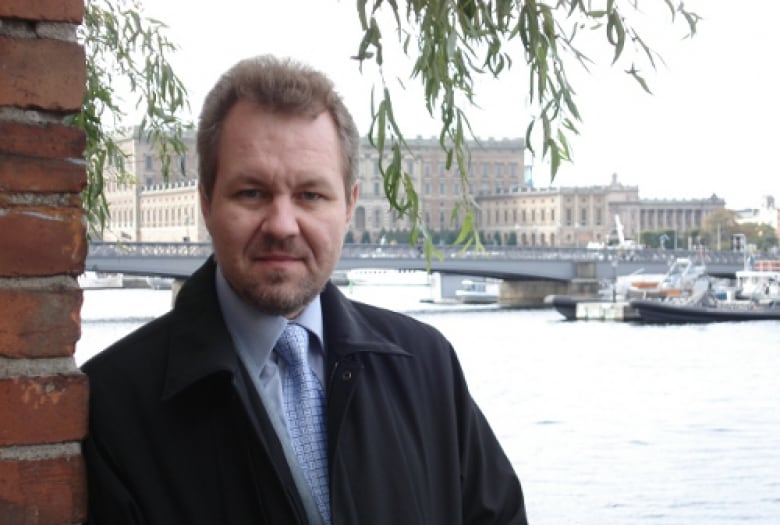In his June 20, 2019 Direct Line call-in program, Vladimir Putin attached great importance to the national projects that would "put the economy on a new track, make it tech-intensive and improve labor productivity, thus improving the quality of life and our country's long-term security.[1] Prime Minister Dmitry Medvedev, writing three days prior to the opening of a United Russia party said that "the national projects are an absolute priority for us." Medvedev added that his party supported the national projects not only because it backed Putin but because the national projects would allow improving peoples' lives...in every specific city and district, in every family." Hence: "throughout the entire country, in each region, the party must not only obtain support for our plans but also build a system of monitoring and fulfillment.[2]
In contrast to the Russian leadership's bullishness on national projects Vladislav Inozemtsev, chair at the Department of World Economy at Moscow State University is skeptical about their benefit. In a June 24, 2019 article titled "Artificial Disorder: What's Wrong With the New Version of National Projects?" he reminded his readers that Putin already touted the national projects as a solution back in 2005 with few positive results to show. Currently the program on the one hand lacks the concentration of resources behind a major transformational goal that characterized national projects in other countries and on the other hand is vague about yardsticks for which to measure the success and actual implementation of Russia's national projects.
Inozemtsev's article follows below:[3]

Vladimir Inozemstev (Source. Politrussia.com)
"Vladimir Putin had no time to describe national projects [in detail] during the “Direct Line with Vladimir Putin”, he stated though that "the ultimate goal [of these projects] is to put the economy on a new track, to make it high-tech, to increase labor productivity and on this basis to raise the standard of living of our citizens». The government in fact classified these projects, deciding to exclude from the project layouts any indication for their implementation. That includes intermediate indicators as well as data on specific results achieved throughout the whole six-year period allotted for their implementation.
"This move, which surprised the experts’ community, seems natural to me, and for several reasons."
SUPPORT OUR WORK

The Ambiguity Of The Objectives
"The problem of national projects, in their current form, is their lack of a classical project design. Many programs capable of claiming the status of "national projects" are historically familiar. Their common feature was not only [the achievement] of some significant economic changes, but also the achievement of something that changed the nation's identity nation. In Germany, the reforms of Ludwig Erhard, which put an end to the post-war devastation, could be named as such a project, in China - the emancipation of the population from poverty under Deng Xiaopinp, in the U.S. - large-scale road construction under Dwight Eisenhower and the "moon race" under John F. Kennedy and Lyndon Johnson. Whether a similar status can be claimed, for example, by the national project "Culture" which includes "the holding of 30 children's creativity festivals in the next five years" and "the creation of 15 continuous education centers for cultural workers" let everyone decide for himself.
"Additionally, we should remember that the "priority national projects" were announced by Vladimir Putin already back in September 2005 and that Dmitry Medvedev was elected president in 2008 partially thanks to them. However, even the first projects were not fulfilled. In particular, by 2010, the housing project had not been completed not even by a single indicator: the [initial] target of 80 million square meters of housing was reached only in 2014, but it again dropped below that mark. The May 2012 decrees, which caused a lot of 'distortions in the field', further strengthened skepticism regarding “project-based” approaches. Now the history of national projects is almost 15 years old and their number has grown from four in 2006 to 12 today, annual expenditures from 134.5 billion to more than 2 trillion rubles, but without any significant results (the economy's growth rate in 2005-2008 averaged 6.7%, and in the 2015 – 2018 period it was 0.2%, and, moreover, a five-year contraction in terms of real income only emphasizes that the chosen strategies are far from b optimal).
"Finally, a crucial point is the possibility of assessing practical results. In most [of these] national projects, the goals are too vaguely defined to be meaningful: for example, "the expected duration of a healthy life should rise to 67 years", but this can be achieved by any trivial change in the criteria of what it considered “to be healthy”, the trick that our managers have mastered; the establishment of centers at schools, "equipped with modern material and technical facilities according to one of the areas of study", - this problem could be dealt with by adjusting the criteria for "modernity" of such a facility, etc. There are no specific tasks in the national projects. For example, I would expect to see in the project "Health", the number of surgical joint replacement operations, which in Russia totaled 48,000 against 1.15 million in the U.S., but no, everything was only about the number of specialists who will be sent to rural hospitals."
The Economy Is Set Aside
"No less significant a factor is the connection between the system of national projects and the economy as a whole. The most expensive of them (with a total budget of more than half of the 25 trillion rubles allocated) are the projects for road construction, environmental infrastructure and demography. The situation with roads in the country is complicated: over the past 20 years, the funds allocated for their modernization and construction have increased by more than 30 times, but the attention has been focused on projects of purely regional importance (ring roads with bypasses in Moscow and St. Petersburg, projects in the areas of Sochi and Vladivostok, the Crimean bridge, etc.). On a national scale, the effect of this spending growth is not obvious. In ecology, where the primary interest is the fight against landfills, it is high time to involve foreign companies that are well-established in the processing of waste and commercialization of their products, but this would be unexpected. The projects do not a built-in mechanism for developing competition. Therefore, the funds will be disbursed, but I do not expect any significant results in specific areas, an acceleration of economic growth at the macro level is also very unlikely, due to the very low multipliers in the utilization of budgetary funds.
"If the authorities really wanted to change the economic and social situation in the country, the “national projects” should have been confined to two large programs. One could be a real breakthrough and an initiative for mobilizing society — for example, the transformation of Russia into a country with the most developed communication systems in the world (from space Internet to ultra-modern payment systems). Such a program would generate a great deal of new businesses and automatically induce the development of advanced education, modern technologies and small businesses. The second, of course, should be - and it is surprising, that no room was found for it amongst a dozen national projects - the fight against poverty, on a scale comparable to Johnson's "Great Society" program. This project could include the abolition of income tax for people receiving less than one and a half times the subsistence minimum, a significant increase in pensions and benefits, the introduction of a food aid system modeled on food stamp system and much more. Its success would be assured, as the government would simply give money to people, and immediately they would spend it (the government in Russia knows how to allocate budget funds, but not how to use them). Helping the low-income population would boost demand for domestic goods and jump-start the development of many sectors (in the U.S., $1 of support under SNAP adds $1.79-1.84 to GDP). However, these two programs are both too "simple" from the point of view of Russian bureaucracy and therefore they will never be implemented.
"National projects in their current form were announced in May 2018 and their project layout was approved only by the end of December (it is clear that at such a time this event passed almost unnoticed); today, after six months of "transparency", intermediate targets are forgotten, and, in addition, it is possible to transfer funds from one project to another in the amount equivalent to one and a half the federal budget. In other words, until 2024, the domestic bureaucracy received freedom of maneuver, which could hardly be secured via the conventional budget policy (thus one shouldn’t take seriously the president's words about increasing personal responsibility) but at the same time they have an the ideal excuse, since all national projects deal with sectors that any sensible person would agree are in need of development. And there is nothing unexpected about the fact that the public will be less frequently informed about the national projects' progress: Russia was for a long time a country where success stories are more important than the actual achievements. National projects do not "falter" - they simply bring what they are supposed to bring to a limited circle of people who consider themselves to be identical with Russia."




